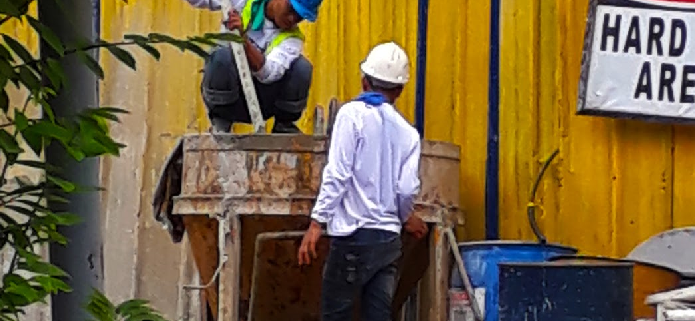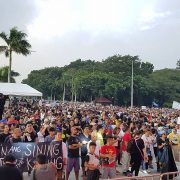Wage hike necessary, overdue amid pandemic and high prices
The Duterte administration gave least number of wage hikes and lowest wage increases of any administration in past 35 years.
by IBON Media & Communications
Research group IBON said that, amid rising prices of basic commodities, minimum wage earners are suffering from how the Duterte administration has been giving the least number of wage hikes and lowest wage increases of the past six administrations in the post-Marcos era. This only made working class families even more vulnerable to the economic shocks triggered by the pandemic. Multiple strategies are needed to arrest the economic distress of poor and low-income households especially since the onset of the pandemic.
IBON noted how the real minimum wage, or the value of wages after adjusting for inflation, is worth 7.2% less today than at the start of the Duterte administration. (See Table) This does not even yet fully include the recent surge in prices of pork, fish, chicken and vegetables. IBON estimates that the real value of the National Capital Region (NCR) minimum wage has fallen to Php434.47 from Php468.06 in June 2016. This is the lowest real wage in over eight-in-a-half years or 103 months.

The Duterte administration was sparing with its wage hikes even before the pandemic. The NCR minimum wage was only increased twice, in September 2017 and November 2018, and by such small amounts that they did not even make up for inflation. When the lockdowns started in March 2020 the real value of the minimum wage was already 3.6% less than in June 2016 – this only deteriorated further to being 7.2% less today.
IBON pointed out that other administrations hiked wages six or seven times and that even the Estrada administration hiked wages twice in its short 2 ½ years in power. These resulted in the real minimum wage increasing by 2.7% (Arroyo) to as much as 54% (Cory Aquino) compared to the more or less continuous decline under the Duterte administration.
It has been more than two years or 27 months since the Duterte administration’s last wage hike to Php537 in November 2018, said IBON. This is the longest period without an increase since July 2004 under the Arroyo administration when the wage increase came after a dry spell of 29 months.
IBON noted that the current minimum wage is even further away from meeting the basic needs of workers’ families. The Php537 minimum wage in NCR is Php520 or 49% short of the Php1,057 family living wage or the amount a family of five needs for a decent living as of December 2020.
As it is, the December 2020 inflation rate of 3.5% is the highest in 21 months, mainly due to higher inflation in food and non-alcoholic beverages, health and transport. The prices of pork, ampalaya, sitao, cabbage, carrots, habitchuelas, tomato, potato and eggplant significantly went up from anywhere between Php40 to Php120 per kilo since December last year. Price increases were even worse for the poorest 30% of households nationwide with a 4.3% inflation rate.
IBON said that the Duterte administration needs to give much greater attention to alleviating widespread economic distress among poor and low-income families. The most urgent measure are new cash subsidies of Php10,000 monthly for at least 2-3 months especially while record unemployment and falling household incomes are not resolved. Price controls are also needed on the food items whose prices are soaring especially amid reports of alleged exploitative pricing by wholesale and retail traders.
The Duterte administration however also needs to go beyond short-term damage control, stressed IBON. The long-term solution to rising food prices is for meaningful government support for farmers and fisherfolk to increase agricultural productivity and output. Yet, IBON pointed out, the share of the national government budget for agriculture has been falling from 3.6% in 2019 to just some 3.2% in 2021.
IBON moreover stressed that a substantial wage hike remains just and necessary even amid the pandemic economic shock. The group said that it is incumbent on the government to come up with schemes to enable a wage hike that increases incomes of low-income households and which will also stimulate aggregate demand in the economy. Among others, this can include mandating higher wages while giving wage subsidies to micro, small and medium enterprises (MSMEs). Wage hikes are long overdue and it is unfair for the working classes to always be made to bear the burden of adjustment to economic crises. #
= = = = = = = =
Kodao publishes IBON articles as part of a content-sharing agreement.







